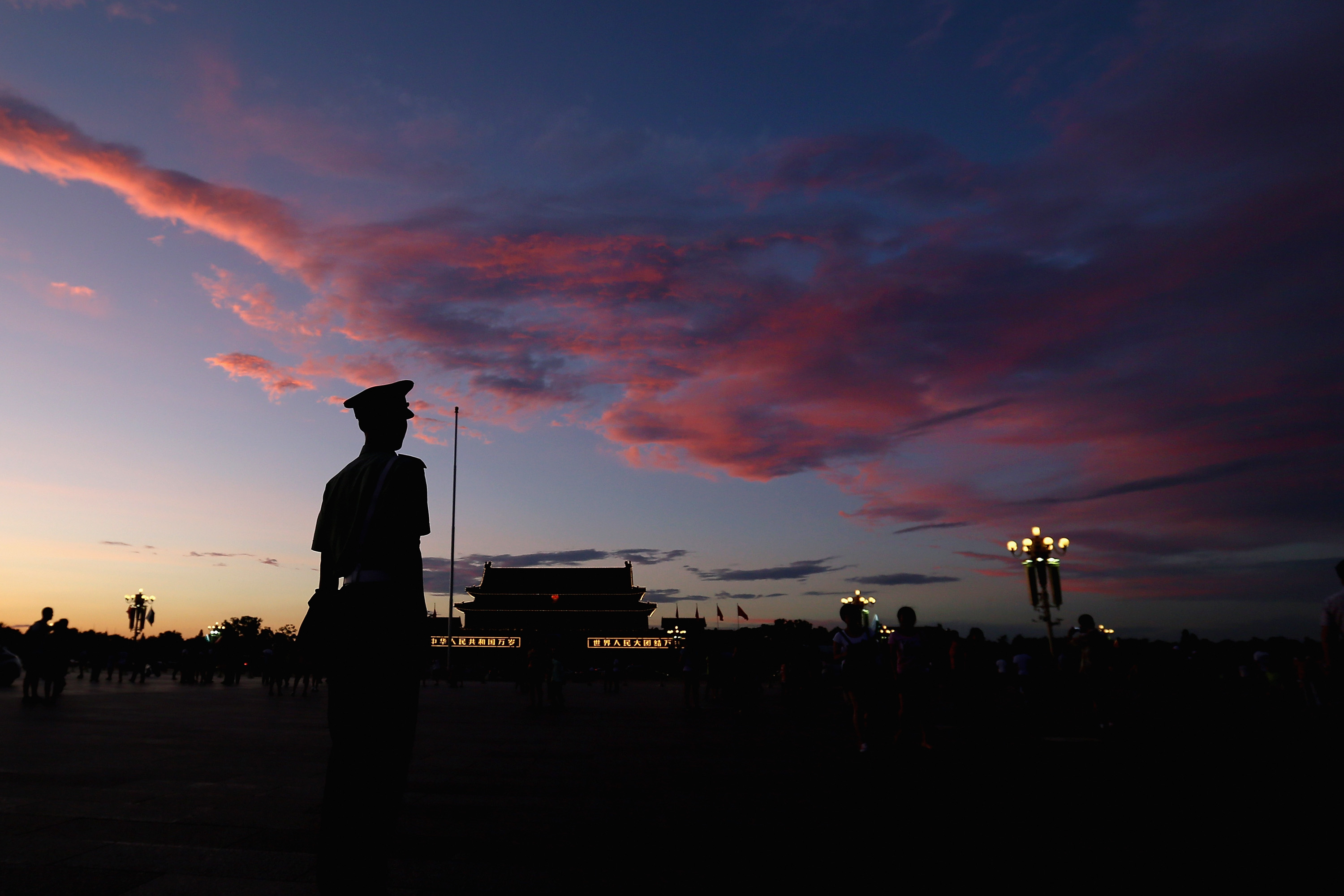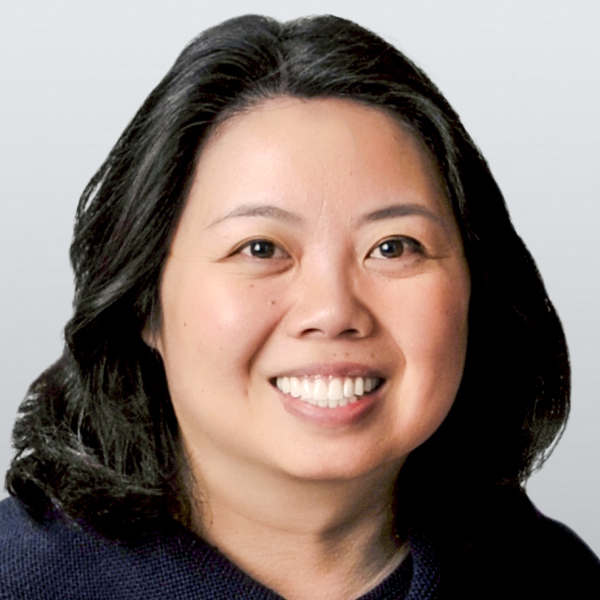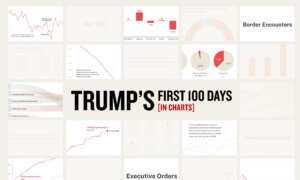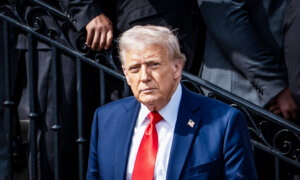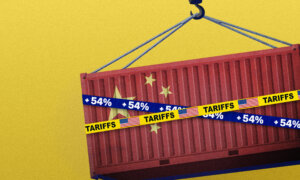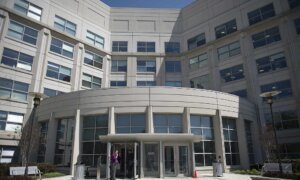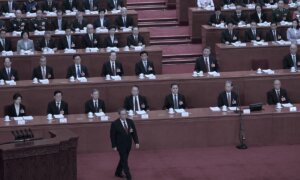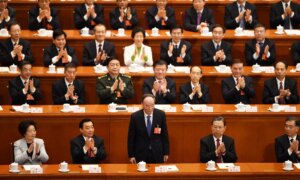A top Chinese military official has just been fired, following the termination of two defense ministers.
The Chinese defense ministry announced on Nov. 28 that Adm. Miao Hua had been suspended and is under investigation. Miao was a member of the Central Military Commission, the six-member top leadership body of the regime’s military.
Chinese Communist Party (CCP) leader Xi Jinping heads the body as chairman.
Xi promoted Miao to admiral in 2015, and Miao joined the Central Military Commission two years later. Before being fired, Miao was also the commission’s director of the Political Work Department, responsible for communist education for military personnel.
Experts say the investigation into Miao could have been initiated by Xi or the anti-Xi faction in the Party’s military, the People’s Liberation Army (PLA).
Regardless, they say, it’s a sign that Xi is facing a power crisis.
Another protégé of Xi, Defense Minister Adm. Dong Jun, is also under investigation, according to reports.
At the Chinese Foreign Affairs Ministry’s daily briefing on Nov. 27, a spokesperson dismissed a question about the reported investigation into Dong as “chasing shadows,” implying that it was a rumor. The published transcript, however, didn’t include the exchange.
The expression “rumors are predictions far ahead of the times” has become common in China. The belief was so widespread that communist propaganda outlets tried to discredit it in a 2015 editorial.
Since Xi took over the Party in 2012, a total of seven Central Military Commission members, including Miao, have been fired.
In October 2023, the CCP officially announced the removal of Li Shangfu from the post of defense minister after a two-month disappearance from public view. Li was rumored to have been stripped of his title at the time he disappeared.
Li was defense minister for seven months. His predecessor, Wei Fenghe, another Central Military Commission member, was removed in March 2023 after serving for five years. Corruption was cited as the official reason for the ouster of both generals.
However, corruption is prevalent among CCP officials. So being caught is not an issue of legal violation; it is the result of a lack of political cover.

U.S. national security adviser Jake Sullivan (L) shakes hands with Zhang Youxia, vice chairman of China's Central Military Commission, before a meeting at the Bayi building in Beijing on Aug. 29, 2024. (Ng Han Guan/Pool/AFP via Getty Images)
Military Infighting
Xi and the Central Military Commission’s vice chairman, Zhang Youxia, are the two ultimate patrons of the Chinese military.
Zhang rose to the international political stage in August when U.S. national security adviser Jake Sullivan met with him in Beijing.
Xi and Zhang grew up together. They are both “second-generation reds” or children of senior CCP officials who established the communist regime in China.
Zhang’s father, Gen. Zhang Zongxun, and Xi’s father, Xi Zhongxun, worked together in Lanzhou for the PLA’s Northwest Field Army in the 1940s. Zhang Zongxun was vice commander, and Xi Zhongxun was deputy political commissar.
In 1952, when Zhang was 2 years old, both families moved to Beijing. Xi was born a year later.
In July 2011, Zhang became a general. The following year, Xi became the CCP’s top leader. Five years later, the two began working together in the Central Military Commission, with Xi and Zhang holding the No. 1 and No. 2 positions, respectively.
Zhang, whose ancestry is in the northwestern Shaanxi Province, won battles during the China–Vietnam border conflict in 1984, the PLA’s last major combat operation, and he is respected and influential in the military.
Meanwhile, Xi’s power base is in the southern Fujian Province, where he spent most of his political career before rising to the central level in Beijing.
Miao served in the army in the same province, now part of the Eastern Theater Command, and worked there alongside Xi. Over the years, Xi promoted and inserted his proxies in the same command, which is responsible for the Taiwan Strait.
Zhang supported Xi in the military when Xi sought his second and third terms as supreme leader in 2017 and 2022. In October 2022, Xi confirmed his third term, and Zhang stayed on as the Central Military Commission vice chair. Zhang was 72 years old—two years older than the retirement age of 70 for such positions.
Their decades-old friendship now faces unprecedented challenges.
According to political commentator Tang Jingyuan, Zhang and Xi gradually drifted apart because Zhang disagreed with Xi’s aggressive plan to seize Taiwan by force.
Li, one of the ousted defense ministers, was Zhang’s successor as the minister of the PLA’s General Armaments Department, and Li often mocked Xi’s Taiwan strategy behind the CCP leader’s back, Tang said.
Tang said Li fell from grace because of this mockery, and given Zhang and Li’s close relationship, Xi was also unhappy with Zhang. According to his sources, Tang said Xi had been monitoring Zhang before an important CCP conference, called the third plenum, in mid-July.
In June, when Li was expelled from the CCP, the official allegation was unusual because it accused him of both receiving and giving bribes.
With this additional allegation, Zhang sensed danger because he could be labeled as the recipient of Li’s graft, according to Yao Cheng, a former lieutenant colonel staff officer of the PLA Navy.
In other words, Li could be used to bring Zhang down if Xi wanted to accuse Zhang of taking bribes from Li in exchange for Li’s promotion to the minister of the PLA’s General Armaments Department. Creating “evidence” to support a corruption charge is a common practice by CCP authorities.
“If Zhang gives up power, he could face a tragic ending given how ruthless Xi is,” Yao told The Epoch Times.
Yao said he believes that Miao’s purge was Zhang’s doing.
“For self-protection, Zhang had to weaken Xi’s forces in the military,” he said.
The PLA harbors strong discontent against Xi, Yao said, because the CCP leader has been aggressively pushing for taking Taiwan by force, which Chinese soldiers and generals oppose.
“Therefore, the military has basically turned against Xi,” Yao said.
Tsukasa Shibuya, president of the Tokyo-based Society for Asia Pacific Affairs, said much the same.
PLA soldiers, he said, don’t want to invade the self-ruled island because “war with Taiwan means war with the United States, and the PLA doesn’t have a solid chance to defeat the U.S. Armed Forces.”
Online rumors also suggest that Eastern Theater Commander Lin Xiangyang could be ousted. If that happens, Shibuya said, Zhang’s underlings would take over the Eastern Command, and Xi’s ambition of invading Taiwan would likely be extinguished.
Shibuya, who has been observing the power struggle between Xi and Zhang, said that Zhang’s faction likely has more influence than Xi’s faction within the military.
Shi Shan, a China expert and a host of the “Pinnacle View” program at NTD, The Epoch Times’ sister media outlet, said the conflict between Xi and Zhang also stems from different military management approaches.
According to Shi, Miao prioritized the PLA’s study of “Xi Jinping Thought,” or Xi’s version of political doctrines, over military training, which military officials and generals prefer to focus on.
‘Precipitous Fall’ of Political Prestige
Yuan Hongbing, a former Peking University law professor living in Australia, views Miao’s demise as a Xi-initiated purge.
The China expert said he doesn’t believe that Xi has lost power in the military—at least not yet—because the Chinese leader can spy on CCP officials through two disciplinary organs: the Central Commission for Discipline Inspection and the National Supervisory Commission.
Yuan said the senior officials were fired not for corruption but for being disloyal to Xi.
However, Yuan said he sees Xi in a power crisis similar to that faced by the first communist leader, Mao Zedong. In his later years, Mao found it difficult to trust other CCP officials, including then-Defense Minister Lin Biao. According to the official narrative, Lin died in a plane crash while fleeing China after an unsuccessful attempt to usurp Mao.
Yuan said the high turnover of senior military leaders shows that Xi doesn’t have anyone whom he can trust amid intensified conflicts in the CCP system. The military is the core power base of any communist leader—as Mao famously said, “power comes from the barrel of a gun.”
“Xi Jinping’s ruling crisis lies in the extreme decline and precipitous fall of his political prestige,” Yuan told The Epoch Times.
He added that, like Mao’s, Xi’s “personal political authority has completely collapsed.”
Shi said his sources in Beijing are reporting that Xi’s internal espionage system is no longer as effective as it was in deterring disloyalty.
About a year ago, Shi said, his sources told him that any official who commented negatively about Xi after drinking alcohol (they wouldn’t have dared criticize Xi while sober, he said) might later be disciplined for “political disloyalty” or “political incorrectness.”
Now his sources say that CCP officials feel comfortable complaining about Xi without the assistance of alcohol.

A Chinese paramilitary policemen guard at Tiananmen Square in Beijing on May 3, 2012. (Feng Li/Getty Images)
The Point of No Return
The change in power dynamic has also occurred in the economic sphere.
For decades, the CCP has advocated “democratic centralism,” which involves a group decision-making process followed by centralized implementation of those decisions. However, Xi changed this system, emphasizing “centralized, unified leadership” to consolidate his power.
However, in July, the CCP abruptly resumed its propaganda about democratic centralism after the third plenum, which mapped out five-year economic and social policies for the state.
China commentator Tang pointed to another telling sign of a power shift.
During the CCP’s celebration in September for the 75th anniversary of the establishment of the communist state, dozens of CCP elders—former high-ranking officials whose power Xi had sought to suppress during his tenure—sat at the main table with Xi. The current Politburo members, the two dozen highest-ranking Party officials, sat at side tables.
Tang said that according to CCP norms, this was a “strong political signal” and a concrete display of the internal compromise that Xi had made within the Party during the third plenum.
Xi’s three years of strict public lockdowns during the COVID-19 pandemic and his 10-year industrial policy to transition China’s economy to advanced manufacturing have largely failed.
Since he abruptly lifted the stringent COVID-19 measures in December 2022, China’s economy hasn’t recovered, even after a series of stimulus packages totaling about $2 trillion. China expert Shi said one direct consequence is that CCP officials are making less money, and this has caused significant discontent with Xi.
At a forum held a week after the third plenum, Xi made a rare public admission that China’s economy faces challenges. He emphasized the importance of having faith in China’s economic development and following the CCP’s leadership.
Then, in August, in another rare move, China’s State Council laid out the Party’s economic agenda, which included measures such as boosting consumption in the private tutoring and gaming industries. These constituted a U-turn from Xi’s previous policies.
The announcement was unusual because the State Council is a government body that is not part of the Party apparatus, so it is generally expected to adhere to the directives of the Party and its general secretary, also one of Xi’s titles. On all administrative levels, the Party system trumps governmental bodies.
Such changes in national strategies and approaches are perceived as “corrections” to Xi’s policies, Shi said. Even if no one holds Xi accountable for his mistakes, a different group of leaders would usually implement the changes, he said.
“Xi is subject to a huge political risk. When another group executes new strategies, they can take advantage of the situation and eliminate the incumbents,” Shi said.
“When Xi’s faction loses power, the consequence is dire.”
Shi agreed that Xi made power concessions during the third plenum.
“The problem is such concession in the communist system is bottomless. Once it starts, it will continue,” he said.
But Xi’s supporters are unlikely to want him to step down, Shi said. Although Xi might strike a deal to remain a figurehead, Xi’s underlings will be purged and severely penalized as the new political camp solidifies its power, he said.

Chinese People's Liberation Army soldiers assembly during military training on the Pamir Mountains in Kashgar, northwestern China's Xinjiang autonomous region, on Jan. 4, 2021. (STR/AFP via Getty Images)
What Happens Next?
In recent years, Xi has talked about preparing for a “violent storm.” According to Yuan, the former professor, that might be a fitting description of what Xi and the CCP face.
Yuan said relations between the United States and the Chinese regime will likely evolve from the current cold war to a trade and diplomatic war, possibly leading to direct military conflict.
If President-elect Donald Trump were to end the Russia–Ukraine war, he would likely lift the sanctions on Russia and form a partnership with Moscow to break up the axis of U.S. foreign adversaries led by China and Russia, Yuan said. Such a geopolitical shift is the most feared by Xi, he added.
Former PLA Navy officer Yao said soldiers are speculating that Xi will step down from his Central Military Commission chairman and general secretary posts next year while keeping the figurehead title of “president.”
However, Shi said he doesn’t believe that Xi will step down as soon as next year.
“Any large-scale changes will be a heavy blow to the CCP system,” he said.
The CCP will likely keep the status quo until 2027, when Xi’s current term is up, according to Shi and Shibuya.
But Shi added that “sometimes the power struggles have their own legs and may not go entirely according to plan.”
Shibuya said Xi will try to regain power, especially military power, in the next three years. Furthermore, the anti-Xi groups aren’t very united, which prevents them from effectively crafting policies, making China’s economic recovery even more challenging.
The chaos, Shibuya said, might lead China to a civil war, which was mentioned in an off-the-record speech that Xi was reported to have made in June in Yan’an, the CCP’s power base in its early years. Wu Zuolai, a political commentator and independent scholar, disclosed a partial copy of the transcript.
Shi said he believes that one significant consequence of Xi’s faltering control could be that the CCP would no longer have an absolute leader, as Party insiders would not allow that to happen again. If different forces were to develop and refuse to consolidate, he said, China might move into a situation similar to the warlord era after the last Qing Dynasty fell. Between 1916 and 1928, nine military forces divided up mainland China.
If that happens, Shi said, the warlords might not run their systems on a communist platform.
Tang said he thinks that if Xi loses power, the CCP may adopt former leader Deng Xiaoping’s “hide your strength and bide your time” approach to keep a low profile internationally. This would mean less involvement in supporting Russia in the Ukraine war and less aggression in the South China Sea.
However, Tang said that the CCP’s end game is to replace the United States as the world’s hegemon; thus, the Party’s moderation would be only temporary.
According to Yuan, Xi may fight back by invading Taiwan to escape his domestic predicament—a perilous gambit.
“When Xi launches the war against Taiwan, it’s also the time that he rings the funeral toll for the CCP tyranny and himself.”
Jessica Mao and Olivia Li contributed to this report.

